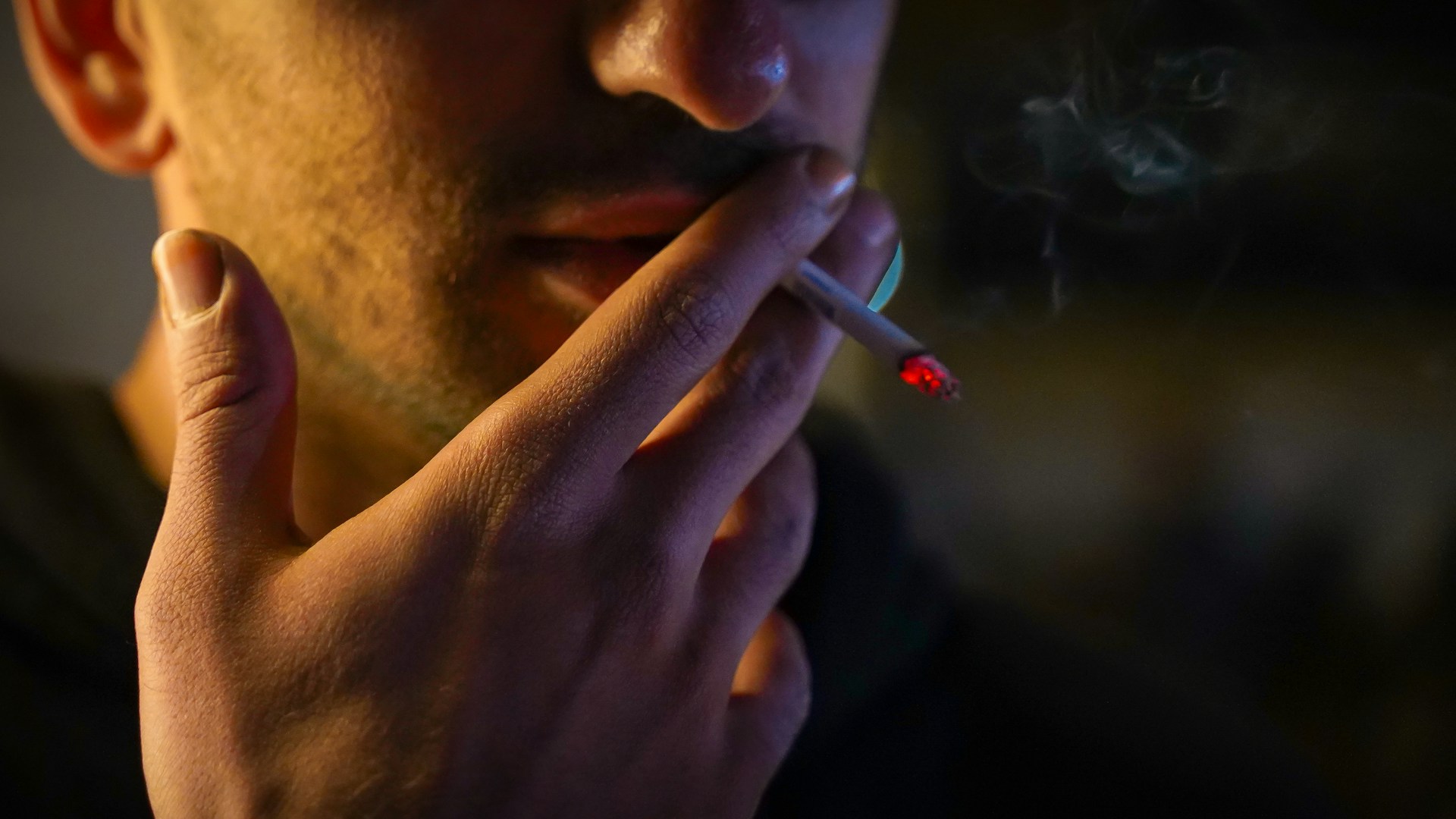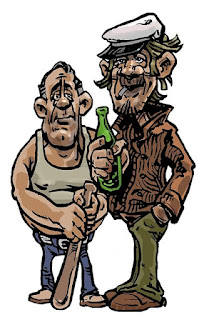How to Quit Any Type of Addiction: 12 Proven Strategies
In most instances, the word "addiction" is used to denote the condition of having excessive urge to use a substance or engage in certain habits to the point that one cannot control it. It is considered a psychological disorder and harmful to the individual involved.
People get addicted to substances or lifestyles for many reasons. Some do for euphoria (temporal happiness), pleasure, or health reasons; while for some, it has become a hobby or all they need to feel among, confident and active. Even so, the danger associated with addiction is higher than whatever the addict thinks he/she is benefitting from it.
The worst aspect of getting addicted to a substance or behavior is that it is hard to quit even when you know it is harmful. In severe cases, medical or therapeutic assistance is needed to help one quit addiction. However, we want to discuss about ways you can help yourself quit any form of addiction even without medical support.

Things people get addicted to:
i. Substances: Substance abuse is the most popular form of addiction world wide. Such substances include alcohol, nicotine (tobacco), marijuana, cocaine, hallucinogens, opioids, inhalants, stimulants, benzodiazepines, even caffeine and painkillers (as it is the case with tramadol). Some of these substances are highly dangerous and pose serious health challenges to users as well as placing the society at risk of crimes and social menace. A 2019 report by the United Nations Office on Drugs and Crimes states that over 35 million people world wide have suffered drug use disorder which is synonymous to drug addiction. Meanwhile, about 270 million have used psychoactive drugs (World Health Organization), which also pose threat of addiction. The list of substances people get addicted to can continue to the end of this page, if one can even name all of it. Cocaine is the most addictive substance in the world followed by heroin, then alcohol.
ii. Habits/Behaviors: While substance addiction has seen more expert attention, lifestyle addiction is also very common form of addiction. It seems almost everyone had once in a lifetime struggled with one form of lifestyle addiction or the other, what we call bad habits. The most common addictions in this category include pornography, poor eating habit, gambling, shopping, social media, computer and phone screens, sex, internet, gaming (video games), tattoos, music, among others. Some of these addictive behaviors feel like they should not be here, but here they are. Some behavioral addictions like pornography and gambling can be very hard to quit and can greatly affect ones health and/or psychology.
Challenges in Quitting Addiction
a. Withdrawal symptoms
One of the biggest challenges when trying to quit whatever you are addicted to are the withdrawal symptoms. These are abnormal experiences and health challenges you might face when trying to quit addictive substances or behaviors. Withdrawal symptoms can range from physical symptoms to psychological ones.
i. Physical withdrawal symptoms: It is normal to experience some physical symptoms and abnormal body reactions when trying to stop addiction. Examples of such physical symptoms you might experience when trying to overcome addiction include nausea, stomachache, eating irregularities, muscle spasm, or weakness. These physical symptoms can persist for a while, especially a few weeks after trying to stop the addiction. Although it is hard to bear these physical symptoms without continuing your addictive behaviors, they can go within a short period of time.
ii. Psychological withdrawal symptoms: Quitting addiction can bring a lot of bad feelings associated with your psychology. These psychological symptoms range from mild to serious ones that one may struggle to manage. Examples of psychological symptoms associated with quitting addiction include anxiety, mood swings, depression, insomnia (sleeplessness), craving, irritability, anger and feeling of discomfort. When you experience any of these in the process of trying to stop addiction, all you need to do is to find help instead of going back to the lifestyle to remediate your situation.
b. Effects on the brain and psychology
Addiction is a psychological challenge, hence, quitting will most likely have a serious effect on your psychology which might be hard to bear. For instance, if you were addicted to psychoactive drugs, stopping them can make you temporarily ineffective because of drug reliance. You might temporary loss concentration or the 'vibes' you derived from the drug you have been taking.

c. Social challenges of stopping addiction
Sometimes people get addicted to substances like drugs and lifestyles like gambling because of those they associate with. One of the main challenge in stopping addiction is that you are likely to find yourself not getting along with your old friends again. Those people you used to drink, smoke and gamble together may no more be much interested in keeping the conditional friendship. This can make it hard to quit because of fear of losing friends and comrades.
d. Procrastination
Procrastination is one of the greatest challenges addicts face when they want to quit. Until you make up your mind, you can continue to plan to quit that addiction for the next fifty years. What makes it an addiction is that indulging in it has become part of your life which makes it hard to face the new horizon awaiting you. Any addict that wins the fight against procrastination can easily makeup his mind to end being a slave to his/her addiction.
Here are ways to stop any kind of addiction without medical assistance
1. Set the deadline
Continuously planning to stop addiction will not help as you will keep on procrastinating. One thing about addiction is that it is hard to quit, therefore, you need to force yourself by setting the final deadline. When you set a date, say, "...from next week, I will not take this drug again," it is left for you to stick to your timing and begin the recovery process. Think about goal-setting and apply the strict timing in your quitting process.
2. Declare it publicly
Openly let people know that you are not taking that alcohol, substance or gambling again. Why this help is that whenever you want to go back to your habit, someone will likely make jest of you or remind you of what you said. The fear of not sticking to what you have already told people will help you quit addiction.
3. Change your company of friends
Some forms of addiction like drug abuse is possible because of the company of friends people keep. If all your friends are drug addicts, the chance that you will stop is very low. The first step to skip is to dissociate from such friends before beginning to quit your addiction.

4. Dedicate time to learn about the danger for addiction
When people see the inscription, "Smokers are liable to die young," it does not mean much to them. However, when you go deeper into learning about the danger of alcoholism, drugs and substance abuse, you will likely begin to think about your health and your life and begin to quit the habit. Have you ever read about how alcohol or drugs like tramadol reacts in the body when abused? Research about each of those drug addiction and see how dangerous they are to your health.
5. Prepare for the withdrawal symptoms
It is hard to withstand withdrawal symptoms associated with quitting certain habits. During the experience, the chance that you will return to your old habit is vey high. It is therefore important to prepare for withdrawal symptoms and think about ways to overcome them. This preparation keeps you ahead of the quitting process from your addictive behaviors. The most challenging withdrawal symptoms are those associated with mental health disorder.
6. Relocate to a new environment
Environment play vital roles in one's lifestyle and behavior. Changing environment can help you stop addiction. In cases where you live in environment full of substance users, changing environment to places where access to drug is not possible can help you stop your addiction. This applies to both substance addiction and behavioral ones.
7. Substitute the addictive substance
If you are addicted to substances say soda, caffeine or others that might be president in drinks, you can move to a substitute. For instance, drinking water whenever you feel like taking a soda drink can help you through.

8. Embrace a new way of life and belief system
Belief system greatly influences once choice and behavioral decisions. People who don't care about morality or social norms can engage in any unhealthy activity that can lead to addiction. Try seeing the world from a different perspective, embrace social ethics or religious rules and see if that can help you change your addictive lifestyles. Build positive habits that can help you grow against your addictive lifestyle.
9. Engage in self-care practices to stay happy
Try to do things that can keep you happy during the this struggling period of quitting your addiction. You can engage in exercise, read books, eat what you like, watch movies or do whatever gives you fun. Keeping yourself happy and engage will prevent you from seeking for another source of euphoria like alcohol or drug which are addictive. Self-care practices can give you great relaxation, lasting happiness, relief and all you need to stay away from your addiction.
10. Avoid items or substances you were addicted to
It is hard to quit addiction if you continue to sell, produce or have access to that which you were addicted to. Assuming you are addicted to alcohol, avoid where people drink and do not keep it at home. If you are a lifestyle addict, avoid any videos, photos or whatever can remind you to go back to your old life as an addict.
11. Seek help immediately
If you have struggled to stop addiction and it still feels impossible, then you need help. There are experts, especially in the medical field who can help you overcome your addiction. Go to the hospital to seek for help or ask for a good therapist that can help you to overcome your addictive lifestyle.12. Confess and be free
The hardest form of addiction to quit is the one you keep to yourself. It is hard to stop it when it is done in secret but the fact that you have to keep pretending makes it more dangerous to your mental health. Most lifestyle addictions like addiction to pornography falls under this category. It is advisable to open up to someone about your struggle, especially if that person is an expert. It will help you lose free from that personal struggle and create route for self-recovery from that lifestyle.
Conclusion
Addiction is a major health and social challenge globally. You are not the only one struggling with addictions, millions do. But guess what? Millions have also been able to stop addiction, which means that you too can be free from it. While extreme levels of addiction may require medical treatment, the best way is for you to adjust your lifestyles and take the necessary steps as stated in this article. This will help you overcome your addiction and begin a new life of freedom from this self-inflicted bondage.
Written by: Abasiama Akpan (Abas Obot)
Reviewed by: Dr. Arden Winston






